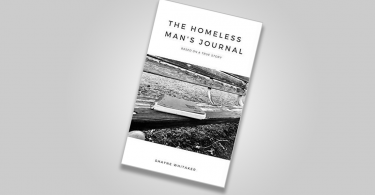“Mother, they write poems” – so reads the epigraph to Australian novelist Richard Flanagan’s ambitious novel, concerning life on the infamous Japanese “Death Railway” during the Second World War. Taking its title from one of the greatest works in Japanese literature by the haiku poet Basho, the vertiginous timeline of Flanagan’s own work expresses one universal truth: that all human history is a history of violence.
Despite its bleak subject matter and philosophising, however, this is not an inherently pessimistic book. Basho’s original work – a mixture of haiku and prose – is a masterpiece of meditation, philosophy, and precision. And in its namesake, Flanagan imbues his prose with poetry in the form of haikus, ontological meditations, and a perceptive juxtaposition of the beauty of the Japanese culture, and the brutality of its war effort.
Individualism and Universality
Focusing on the life of Alwyn “Dorrigo” Evans, a doctor and the officer in charge of J Force – the one-thousand strong assortment of mostly Australian PoWs working on the infamous “Line” in Burma – Flanagan’s narrative pulls us incessantly back and forth across both time and place.
Based on the wartime experiences of the author’s grandfather, who died just as the book was finished, Dorrigo’s character is intimately and masterfully drawn. Through this individual, Flanagan manages to universalise a generation’s anguish, and his strength lies in forcing the reader to make difficult, sympathetic leaps throughout the novel’s 448 pages.
The suffering of J Force at the hands of their Japanese captors is a brutal, and often viscerally difficult narrative to become lost in. But perhaps even more difficult than the scenes of egregious violence, are the unsignposted leaps Flanagan makes to the perspective of the Japanese Major responsible for many of the atrocities, as he suffers through homelessness during Tokyo’s post-war reconstruction.
Humanising the Inhuman
Representations of the WWII Prisoner of War camps in western literature,inevitably focus on the suffering of those who were captured – many of whom were worked to death. Not only does Flanagan attempt, and mostly succeed,in describing such horrific acts, but he also humanises the people responsible for perpetrating them.
From the Burmese Jungle, where putrefying flesh, skeletal human beings, and merciless soldiers abound, he drags us to a Tokyo broiling in the midst of post-war reconstruction. Here, we find Major Nakamura, a formerly proud and vicious Japanese general, responsible for some of the PoW’s most brutal beatings and unjustifiable deaths.
Here, though, he is changed. As he discovers himself to be listed by the Americans as a wanted war ciminal, Flanagan takes us deep within the ex-soldier’s psyche. Once there, we grapple with him as he struggles to understand how he could be called a criminal, for treating the prisoners as he was ordered to by the Emperor; who, of course, remains unmolested.
Here, Flanagan’s history of human violence reminds us starkly of one thing: morality is decided by the victors, and the human cogs of the war machine are far more easily punished than the engine that drives it.
Love and Hate
Juxtaposed with this tale of death, destruction, and disdain for life, is the bittersweet relationship between the young Dorrigo, and his Uncle’s remote and conflicted wife. Here, however, it is impossible not to notice that Flanagan’s own idealised image of the redemptive powers of a woman’s love have, perhaps just a little, clouded his keener insights.
Amy is possibly the least well-drawn of Flanagan’s formidably well-realised characters. It’s obvious that he has attempted to create a strong, complicated young woman who, like Dorrigo, finds her true self only within the object of her affections.
However, although the resulting passages are beautifully written and often with more than an element of the poetic to their form, for me, this analysis of the star-crossed lovers was too simplistic, and the psychology too loosely weaved around a laboriously romanticised archetype.
A Timeline Too Far
Similarly, for all of the author’s masterful treatment of the complex issues surrounding war, torture, enslavement, and the jarring return to civility for the prisoners at the battle’s end, his final chapters felt like a step too far.
Yes, it was important for us to witness the enduring camaraderie between those men who survived. Likewise, the state of Dorrigo’s relationship with his future family could never have been glossed over.
Nevertheless, without giving too much away, the chapters featuring the fire during our protagonists’s twilight years, and the incredible serendipity of one Darky Gardiner’s heritage, are inescapably contrived. What’s more, they come as a severe disappointment when set against the virtuosic treatment of the far grander issues that have gone before.
In the end, though, The Narrow Road to the Deep North is a deeply impressive novel. With disarming narrative control and sympathetic consideration, Flanagan has succeeded in examining one of the darker periods of our recent history, and creating one of the most insightful books published in recent years. It’s just a shame he didn’t know when to stop.








